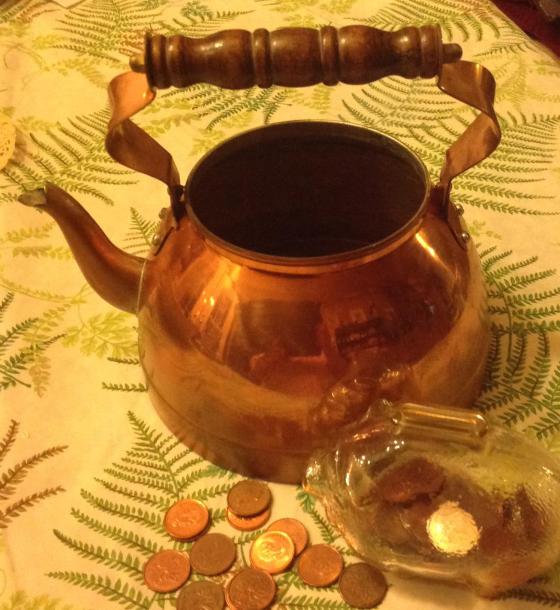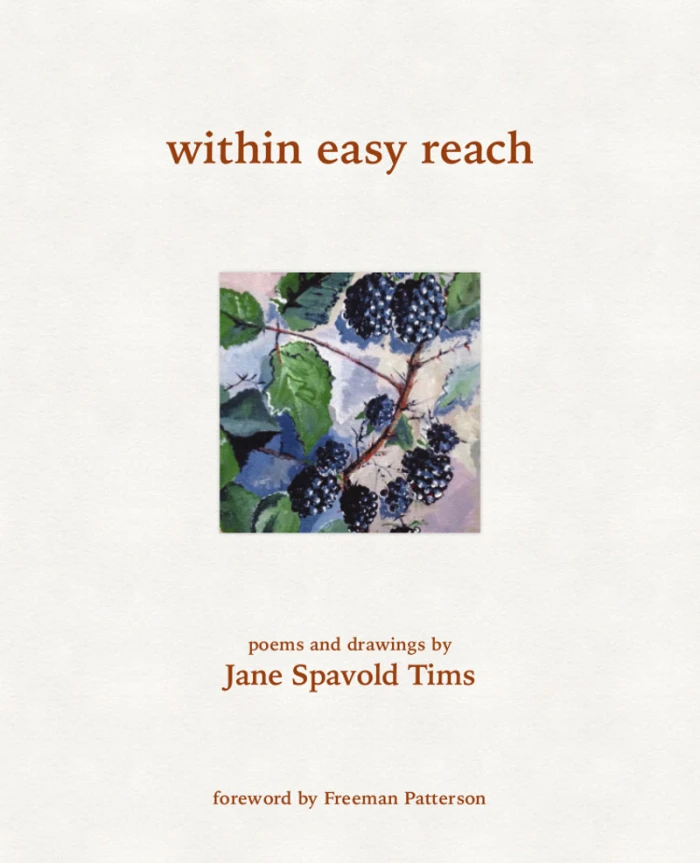harvesting colour – gathering more materials
As I get ready for my first experiences with dyeing, I have thought about the materials I will be using. I don’t want to get too complicated and sabotage my real aim, the poetry I will write. I will try to keep it simple and generate lots of fuel for my writing.
Textile fibre: As I explained in my previous post on ‘harvesting colour’, I will use both plant (three old cotton shirts) and animal fibres (unspun wool and silk fabric).
Source water: I will be using our well water – slightly acidic and high in several minerals. Our water is so acid, it reacts with the copper piping in our house to stain all the drains in our house a copper sulphate blue. I know that the acidity of the source water influences the colour outcome. For some of the plant dyes I will use (for example madder), I will want to adjust the water acidity to get a full range of possible colours.
~
Utensils: Last fall I bought myself a large stainless steel pot for my dyeing projects since I know it is important to keep my dying utensils separate from our cookware. I also have my Mother-in-law’s copper teapot if I want to add some ‘copper kettle’ to my dye projects (copper is a mordant, an addition that helps keep textiles colourfast).
~

my mother-in-law’s copper kettle – since my husband doubts it is solid copper, I may have to add some copper pennies to get the mordant effect of copper
~
Plant material: Even in winter, I have access to many plant materials for dying. I have various flower petals and other plant material from my various botanizing adventures. The drying line in my kitchen has a bouquet of tansy gathered last fall and a net bag of onion peelings I have collected since Christmas. I have acorns collected last fall and, outside, access to the bark of various trees, including birch (I am anxious to try this since I understand birch bark can dye in hues of red). In my freezer, I have frozen berries, including a tub of red currents picked by my Mom over ten years ago – I plan to use her berries to dye material for my weaving, after I have gained a little experience. As for in-season plants, I know my husband is looking forward to being dragged all over the countryside in search of various kinds of plants (he was a very helpful participant in my ‘growing and gathering’ project.
~
~
For next Friday’s ‘harvesting colour’ post, I’ll talk a little about mordants and colour modifiers and I think I’ll post my first poem in the series!
~
Copyright 2014 Jane Tims






















Your dying recipe sounds tasty enough to eat. I love all the thought you’re putting into it and the diversity and richness of the things you choose to use. It’s very imaginative and inspiring!
LikeLike
Top Of The Slush Pile
March 1, 2014 at 5:39 am
Hi Gemma. I look at the jar every day and wish I could open it to see what patterns are imprinting there…. Jane
LikeLike
jane tims
March 3, 2014 at 3:40 pm
I learned a new word today-mordant. 🙂
LikeLike
Sheryl
February 28, 2014 at 11:37 pm
Hi Sheryl. Mordant comes from the French word ‘to bite’ indicating that the colour had more bite or staying power when a mordant was used …. Jane
LikeLike
jane tims
March 3, 2014 at 3:42 pm
I had no idea about birch bark dying red. Fascinating project, Jane. 🙂
LikeLike
Robin
February 28, 2014 at 9:01 am
Hi Robin. I can only hope – this is what the book says … I’ll be trying it out and hope I can obtain the red …. Jane
LikeLike
jane tims
March 3, 2014 at 3:43 pm